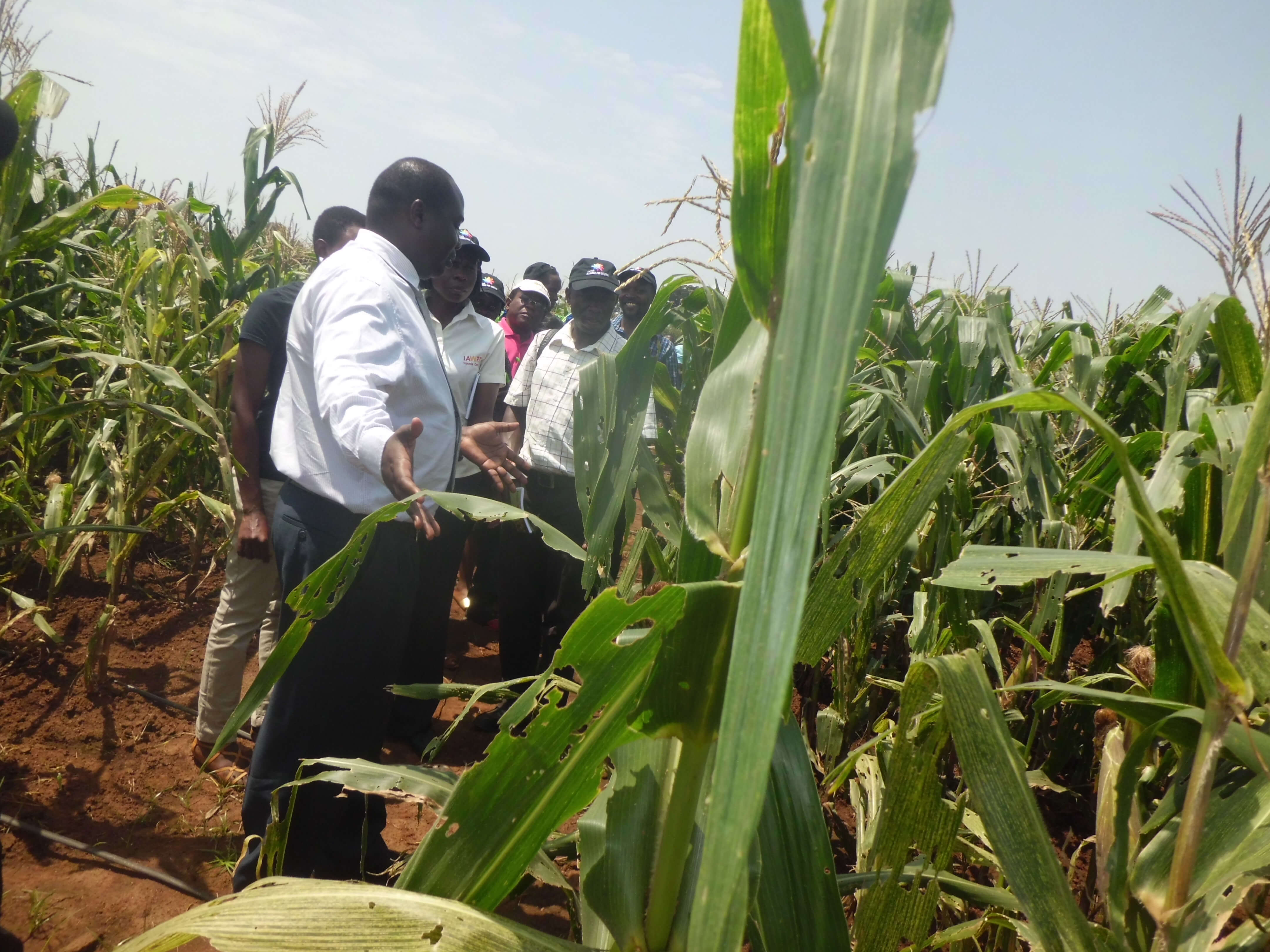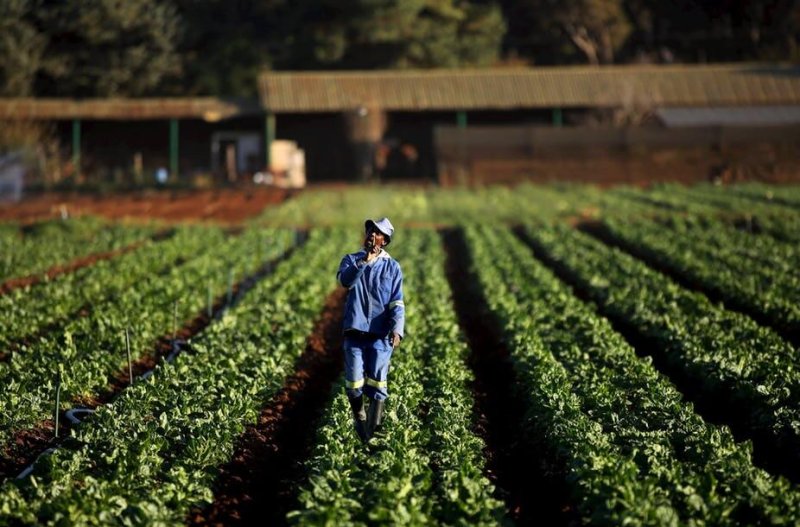The nation’s politicians have struggled to get a meaningful biosafety bill passed the desk of the president, who has thus far refused to sign two different measures – the most recent was sent to him late last year by parliament.
One of the major obstacles to this effort is an ongoing campaign waged by non-governmental organizations determined to keep the nation free of GMOs. Among those is the Food Rights Alliance (FRA), local NGO that advocates for food security rights and against modern biotechnology methods.
In a recent phone conversation, Agnes Kirabo, the group’s executive director, defended a public radio campaign urging legislators and the public to rise up and maintain a controversial liability clause in the Genetic Engineering Regulatory Bill (GERA) still awaiting the president’s signature.
The campaign, after all, seems to run counter to the organization’s overall mission to improve the nation’s food supply. But Kirabo argued that the liability clause is needed to protect everyone against the potential for harm being caused by GMO crops. She said:
We do not support development of GMO products in Uganda … we advocate for sustainability of farming systems including good innovations for our people to enjoy food.
According to is 2016 annual report, the group works in collaboration with organizations such as Action Aid Uganda, which also opposes the technology and sponsored a series of radio advertisements claiming that eating GMOs will cause cancer. The annual report details various project contracts worth millions of dollars from organizations such as World Bank, European Commission, UN Women, UN Habitat, UN Human Rights, the Netherlands Embassy, DANIDA, Ford Foundation and the Berkeley Trust.
Biosafety law origins
While the current biosafety measure was approved by parliament late last year, this was actually the second attempt. In 2012, another measure was introduced and debated for more than four years before being approved in 2017. But anti-GMO activists with close ties to the president’s office contested it, raising fears that commercialization of GM crops could hurt farmers and the environment.
In the end, the president refused to sign this law and returned it to parliament, seeking clarity in some specific clauses. That what brought us to the so-called ‘strict liability’ clause.

It is the part of the act, known as clause 35, which deals with liability issues. In the event that there is any harm to the environment or human health, the act presumes guilt for any person or company holding a patent for the genetically engineered product accused of causing the problem.
The clause came about as the result of lobbying by activists who urged legislators to include it. And that set the stage for the current public debate, between those activists and scientists who worry the clause will serve to block innovation.
This has sent activists to public radio stations with campaign messages: “Did you know the president of Uganda is about to sign the GERA law? Did you know that scientists are pushing for the amendment of the law? Are you aware that promoters of GMO’s are fighting so hard to amend this clause? Rise up members of Parliament and appeal to the President not to sign this law.”
This is not the first time such a campaign has been driven by activists on community and public radio. In 2013, the group appealed to members of parliament during earlier debates about the bill. The FRA argued that GM trials were already being conducted in the country and that:
Genetic engineering organisms have negative health effects on you, cropping systems, domestic animals and wild life, preservation and conservation of biodiversity which will affect food security in future.
What scientists and policy makers are saying?
In general, agricultural scientists researching transgenic breeding methods say they aren’t pushing for the amendment of GERA law and they are not lobbying the president to sign it.
Some suggest that activists are trying to justify the funding they get from international organizations meant to support small holder farmers by diverting it to oppose a technology developed to solve food security issues not only in Uganda but the entire African continent.
Others argue against the campaign, saying it is unreasonable and a waste of time because Uganda is working to provide enough food for its citizens and to alleviate poverty among the rural communities. The country’s vision 2040 is for its citizens to reach middle income status, which could be achieved through agriculture.
The experts argue that anti GMO activists are opposing all new agricultural technologies including use of herbicides, pesticides and fertilizers because they want farmers to employ rudimentary farming practices.
Maxwell Otim Onapa the deputy executive secretary of Uganda National Council for Science and Technology which oversees and regulates scientific research in the country argues that anti-GMO activists want to persuade lawmakers to accept unfounded claims about use of science to develop food for the nation.
Onapa also questioned whether researchers had anything to fear from the liability clause: “My understanding is that if someone is innovating something which is not patented then such a person is not held liable.”

Stephen Buah, program leader for the fortified banana research at Uganda’s National Agricultural Research Laboratories (NaRL) said scientists have a mandate to develop agricultural products be it traditional varieties, hybrid or GMO for farmers. These products he said will not be imposed on farmers but they will embrace them as a choice.
“I am not worried about the law because Uganda is signatory to the Cartagena protocol which gives the country mandate for its scientists to develop and release GMO products to end users,” he said.
He urged Ugandans to have political will and to trust their own scientists stating that part of their research work in breeding GMO banana varieties is meant to address challenges of food security to the growing population.
Jerome Kubiriba, head of NaRL’s banana research program, also expressed doubts about the negative impact of the strict liability measure.
“The law has a specific clause which is strict on scientists but this will not stop us from releasing GMO products to farmers. … As long as the law is signed we shall release our products to farmers because we know what we are doing as scientists, the process will be just like releasing hybrid crop varieties. Besides GMO’s should not be regarded as some animal from the Mars because scientists take all necessary precautions including safety when developing the product.”
Lominda Afedraru is a freelance science journalist in Uganda who specializes in agriculture, health, environment, climate change and marine science. Follow her on the Daily Monitor web site www.monitor.co.ug, Facebook or Twitter @lominda25































